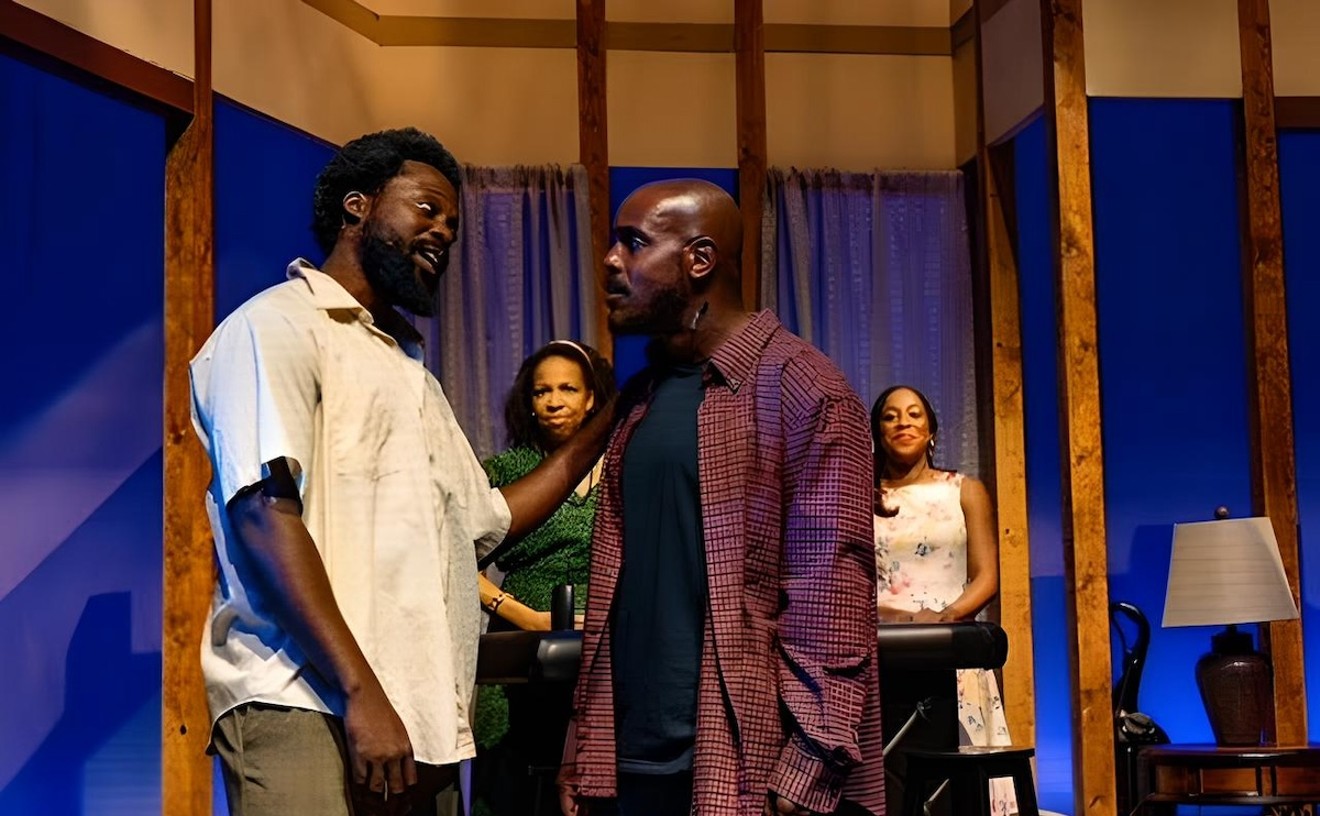"Rumba was a spontaneous activity; it was the newspaper of the times, a way for the slaves to communicate in spite of their oppression," Torres explains. "When black people performed it, it was put down. Then it became commercial, and it got to a point where it became a white thing. Something suffered to accommodate a Western perspective. As long as people think that Cuban culture is white, it's going to be the same story. It's all about control. Black people never have a sense of being in control; their culture is always taken away," she continues. "We do an art that's authentic and somebody comes and takes it away. We're trying to escape that monster. It's hard for us anywhere we go."
In an effort to even the score and raise consciousness in Miami, Torres, director of the Ifé-Ilé dance school and cultural center on SW Seventh Street, has organized the Ifé-Ilé Afro-Cuban Festival. Presented in conjunction with Miami-Dade Community College's Wolfson Campus and Artemis Performance Network, the eight-day event features dance performances and workshops, movie screenings, and panel discussions. Films including Tropicola, director Steve Fagin's look at contemporary Cuba, and Gloria Rolando's tribute to the Afro-Cuban deity, Oggún, will screen nightly at MDCC's Wolfson Campus. Conferences on "Yoruba as a Way of Life" and "Oracle and Divination" will take a serious look at precepts and practices of the syncretic Cuban Yoruba religion -- Santería -- often disdained or mocked by nonbelievers. As part of a workshop about Yoruba cuisine, traditional African foods found on many local Cubans' dinner tables, as well as provisions prepared as offerings to the Afro-Cuban deities of the Yoruba and Congo religions will be presented.
Miami Afro-Cuban poet laureate Adrian Castro, bolero singer Lourdes Simon, eclectic pop band the Baboons, and Torres's Ifé-Ilé Cuban Dance and Music Ensemble perform next Friday, October 1, at Ponce de Leon Circle Park during a special Words and Music evening, which will also include an exhibition of works by Cuban-born artists. The next day the festival culminates with a street fair at the Wolfson Campus. But the main event is the premiere of Torres's own Guaguanco Oyelo Bien, a dance and music revue presented at the Colony Theater this Saturday and Sunday. The show, a sort of Afro-Cuban version of Bring in 'Da Noise, Bring in 'Da Funk, boasts a cast of 25 local dancers and musicians. It traverses the history of Afro-Cuban dance, illustrating seventeenth-century slave dances, a marketplace scene, a Sunday-afternoon rumba gathering on a Havana patio, and a commercial rumba performed by a white dancer, and ends with a celebratory jam.
"It's definitely not totally traditional, but I'm trying to tell a story the way my grandmother told it," says Torres. "The Afro-Cuban community is a minority. People are getting to know the culture but they still don't know much about it. The contribution of this culture is so big throughout the world, and people don't know where it comes from. They don't know the history behind the music and the art that it engenders, and how so many people contributed to it through their suffering.
"Usually people put down these art forms because they belong to black people," Torres contends. "We were brought to the Americas as slaves and we were thought not to be human beings. And that prejudice has lingered. People have been blind to the African contribution to modern culture. I think it's time to celebrate it."










